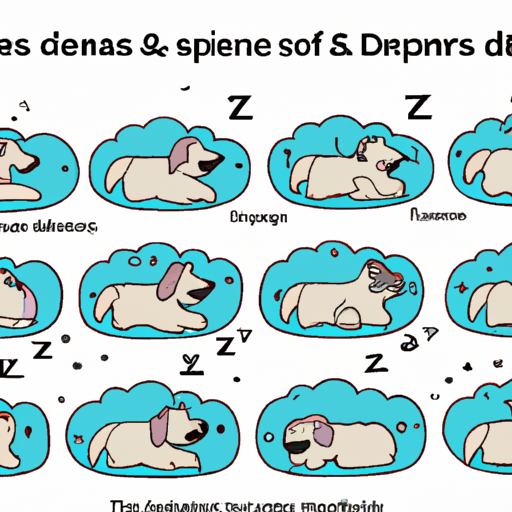Understanding Your Dog’s Sleep Needs
You might have noticed your furry friend sleeping for long stretches of the day and wondered, “Is this normal?” Dogs, like humans, have varying sleep needs which can be influenced by breed, age, size, and overall health. It’s important to be familiar with your dog’s sleeping patterns to ensure they’re getting the rest they need.
The Average Sleep Duration of Dogs
On average, adult dogs sleep for about 12-14 hours per day, while puppies, elderly dogs, and certain breeds may sleep even longer. Here’s a rough guide:
| Age/Breed | Average Sleep Duration |
|---|---|
| Puppies | 18-20 hours per day |
| Adult dogs | 12-14 hours per day |
| Elderly dogs | 14-18 hours per day |
| Large breeds (e.g. Mastiffs, Saint Bernards) | Up to 18 hours per day |
Factors Affecting Your Dog’s Sleep
Several factors can influence your dog’s sleep, including:
- Age: Puppies and older dogs tend to sleep more than healthy, adult dogs.
- Activity Level: Active dogs may need more rest to replenish their energy.
- Health: Dogs with certain health conditions may require more sleep.
How to Support Your Dog’s Sleep
As a caregiver, there are a few things you can do to promote healthy sleep:
- Provide a Comfortable Sleeping Environment: This could be a cozy dog bed or a designated space on your bed if it’s okay with you.
- Maintain a Regular Schedule: Dogs thrive on routine. Try to keep regular timings for meals, walks, playtime, and bedtime.
- Ensure Adequate Exercise: Regular physical activity will help your dog sleep better.
When to Consult a Vet
Changes in your dog’s sleep pattern should not be ignored. If your dog is sleeping too much, or too little, it might be a sign of underlying health issues. Always consult a vet if you notice any drastic changes in your dog’s sleep.
FAQ
Q1: How much should puppies sleep?
A1: Puppies usually sleep for about 18-20 hours a day as they grow and develop.
Q2: My dog is sleeping more than usual. Should I be worried?
A2: If the increased sleep is combined with other symptoms like loss of appetite or lethargy, it’s best to consult a vet.
Q3: Can I share my bed with my dog?
A3: It’s a personal choice. As long as it doesn’t disrupt your sleep and the dog is clean, it’s usually fine.
Q4: Can dogs dream?
A4: Yes, dogs can dream. You might notice them twitching or whimpering in their sleep, which is often a sign of dreaming.



